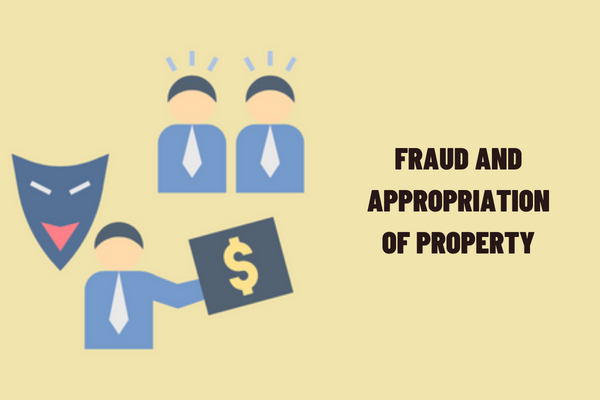In an urgent situation, is it possible to go directly to the police stations to verbally report a fraud?
- In an urgent situation, is it possible to go directly to the police stations to verbally report a fraud?
- Can the police agency refuse to receive denunciations about crimes of fraud and appropriation of property?
- From the date of receiving the denunciation of the crime of property fraud and appropriation, what is the time limit that the investigation authorities must issue a decision to or not to file criminal charges?
In an urgent situation, is it possible to go directly to the police stations to verbally report a fraud?
According to Article 144 of the 2015 Criminal Procedure Code of Vietnam on denunciations, criminal information disclosed and requisitions for charges as follows:
- Denunciation in Vietnam refers to an individual’s detection and denouncement of activities denoting crimes to competent authorities.
- Criminal information disclosed refers to the data on activities denoting crimes as disclosed by authorities, organizations and individuals to competent authorities or the criminal information disclosed through mass media.
- Requisitions for charges refers to a competent governmental authority's written requisition enclosed with relevant evidences and documents to investigation authorities and procuracies authorized to consider and settle cases with signs of criminal activities0}
- Denunciation or criminal information may be made or given verbally or in writing.
- If a person makes or provides false denunciation or criminal information, he shall incur disciplinary or administrative penalties or face criminal prosecution subject to the nature and severity of violations as per the laws.
Thus, it is completely possible to denounce criminals verbally at the police stations.

Fraud and appropriation of property
Can the police agency refuse to receive denunciations about crimes of fraud and appropriation of property?
And in Article 145 of the 2015 Criminal Procedure Code of Vietnam stipulating the responsibilities and authority to receive and process denunciations, criminal information disclosed and requisitions for charges as follows:
- All denunciations, information and charge requests must be fully acquired and processed in timely manner. The authorities shall be responsible for receiving and not rejecting denunciations, information and requisitions.
- The authorities responsible for receiving denunciations, criminal information disclosed and requisitions for charges shall include:
+ Investigation authorities and procuracies that obtain denunciations, information and requisitions;
+ Other authorities that take in denunciations and criminal information disclosed.
- The authority to handle denunciations, information and charge requests is given to:
+ Investigation authorities processing intra vires denunciations, information and requisitions;
+ Units assigned to investigate process denunciations and criminal information disclosed within its powers;
+ The procuracy processes denunciations, information and charge requests when investigation authorities or units assigned to performed certain activities of investigation are found to commit serious violations of the laws during their inspection and verification of denunciations, criminal information disclosed, requisitions for charges or omission of crimes. Furthermore, such issues have not been settled despite the Procuracy’s written requests.
- The authorities empowered to process denunciations, information and charge requests are responsible for informing authorities and entities making denunciations, disclosing criminal information and requisitioning for charges of the results of the former's tasks.
Thus, the agency or organization responsible for receiving must not refuse to receive denunciations, criminal information disclosed and requisitions for charges.
From the date of receiving the denunciation of the crime of property fraud and appropriation, what is the time limit that the investigation authorities must issue a decision to or not to file criminal charges?
Article 147 of the 2015 Criminal Procedure Code of Vietnam stipulates the time limit and procedures for processing denunciations, criminal information disclosed and requisitions for charges as follows:
- Investigation authorities and units assigned to investigate, in 20 days upon receiving denunciations, information and requisitions, shall inspect and verify such information and issue one of the following decisions:
+ Decision to press criminal charges;
+ Decision not to file criminal charges;
+ Decide to suspend the processing of denunciations, information and requisitions.
- If denunciations, criminal information disclosed or requisitions for charges contain complex facts or the verification of such information must be done in several locations, the time limit for processing such information may be extended but shall not exceed 02 months. If activities of investigation and verification cannot end within the time limit as stated in this Section, the head of the equivalent Procuracy or competent Procuracy can sanction one extension of 02 months at most.
Investigation authorities and units assigned to investigate, in at most 05 days before the end of the time limit for investigation and verification, must send a written request for extension to the equivalent Procuracy or competent Procuracy.
- Competent authorities, when processing denunciations, information and requisitions, shall perform these activities:
+ Collect data, documents and items from relevant authorities and entities to verify the information;
+ Examine the scenes;
+ Conduct autopsy;
+ Requisition expert examinations and valuation.
- The sequence, formalities and time limit for the Procuracy's processing of denunciations, information and charge requests are governed by this Article.
Thus, within 20 days from the date of receiving the criminal denunciation, the investigation authorities must issue a decision to press criminal charges.
LawNet
